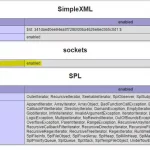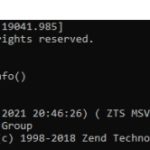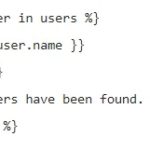PHP, which stands for Hypertext Preprocessor, is a widely-used open-source scripting language designed for web development. Over the years, PHP has evolved and expanded, providing developers with a number of tools and frameworks to make their work easier and more efficient. In this article, we will be discussing the 10 best PHP frameworks and CMSs that developers can use to create high-quality and dynamic websites.

Table of Contents
PHP CMS
WordPress
It is no secret that everyone has heard about WordPress; it has become much more than just a blogging platform. Now, you can use it to create full-fledged websites that are easy to use, intuitive, and straightforward.
Furthermore, you have the ability to customize WordPress in the minutest of details, from themes to plugins. The selection available is equally impressive.
WordPress is also incredibly user-friendly, as it has a straightforward interface that allows you to quickly set up a website in a matter of minutes. The content management system is also highly intuitive and provides a great deal of flexibility when it comes to creating and managing content.
There are a variety of tutorials available online that can help you get a better understanding of WordPress and how to make the most out of it. It’s no surprise that WordPress is a popular choice for website creation and management.
Drupal
Drupal is an open-source content management system (CMS) written in the programming language PHP. It was originally created as a student community project and has since grown into one of the most popular and optimized CMS options available.
Drupal offers a wide range of features, including some borrowed from WordPress, and provides an excellent user experience. It is ideal for creating news, and e-commerce websites and is regularly updated to ensure the best performance.
Joomla
Joomla is designed to be used for blogs, general websites, and other dynamic designs. It is compatible with a variety of database systems, making it easy to integrate with your hosting company in just a few clicks.
Joomla websites are designed to be responsive, meaning they can be viewed on any device without compromising the quality of the content.
Joomla is also SEO-friendly, so it is easy to optimize your website for search engines. It is also very easy to manage and maintain, as you can easily control and update the content without any coding knowledge.
It is very secure, as it provides a secure platform for your website.
OctoberCMS
Based on Laravel, OctoberCMS is a powerful yet easy-to-use content management system that is suitable for both beginners and experienced developers. It has a simple and intuitive user interface, making it easy to create and manage websites.
The platform also provides a range of features such as page editing, content management, media management, and more. OctoberCMS also features an extensive library of themes and plugins, allowing users to customize their websites to their exact needs.
OctoberCMS is highly extensible and can be easily scaled to meet the demands of any website.
OpenCart
Imagine having an open-source platform with built-in search engine optimization and over 13,000 extensions and themes to choose from – that’s how comprehensive OpenCart is!
OpenCart is an e-commerce platform that can be used to manage your online store. It is user-friendly, easy to customize, and an excellent choice for those who are looking to get into the world of e-commerce.
It can be used to create an online store with a wide range of features, including payment processing, inventory management, customer service, shipping, and more. It also offers a wide range of customization options, allowing you to tailor the look and feel of your store to your business’s individual needs.
OpenCart is a great choice for anyone looking to get started in e-commerce.
PHP Framework
Laravel
Laravel is a free, open-source PHP framework that is widely considered to be one of the best frameworks available. It is built with PHP, making it compatible with most PHP projects.
Laravel is known for its elegant syntax and is considered to be one of the most user-friendly frameworks available. Laravel also offers a number of powerful features, including routing, middleware, and an elegant syntax for working with databases.
Symfony
Symfony is well flexible and comes with a component system that allows picking just the features and functions you need – you might as well rely on the whole framework. You have testing features and lots of documentation when it comes to tutorials and how to use the platform.
Symphony is considered to be one of the most robust frameworks available, offering a wide range of features including routing, event handling, and templating. Symphony is also known for its strict coding standards, making it ideal for large-scale projects.
CodeIgniter
CodeIgniter is considered to be one of the fastest and most lightweight frameworks available, making it ideal for small to medium-sized projects.
It is also known for its user-friendly syntax, making it easy for developers to understand and use. CodeIgniter also offers a number of useful features, including MVC architecture, error handling, and security features.
It has a set of advanced components that can be used to check data, filter out malicious content or manage sessions. Additionally, it offers an email-sending class that enables users to send emails with ease.
Yii2
Yii2 is a front-runner when it comes to security. It is quite extensible and scalable, but it also brings in a wide variety of modern technologies.
It is also known for its strict coding standards, making it a popular choice for developers who need to maintain code quality and consistency.
Installing it is fairly simple and getting used to it should take less than a day. It exceeds expectations in terms of performance and acceleration.
Phalcon
There is no doubt that Phalcon is an outstanding framework. It is based on a PHP framework that was created using the C programming language, meaning it can offer amazing performance while using very few resources.
The best part is that you can choose which libraries and modules you want to use, rather than having to use the entire framework.



